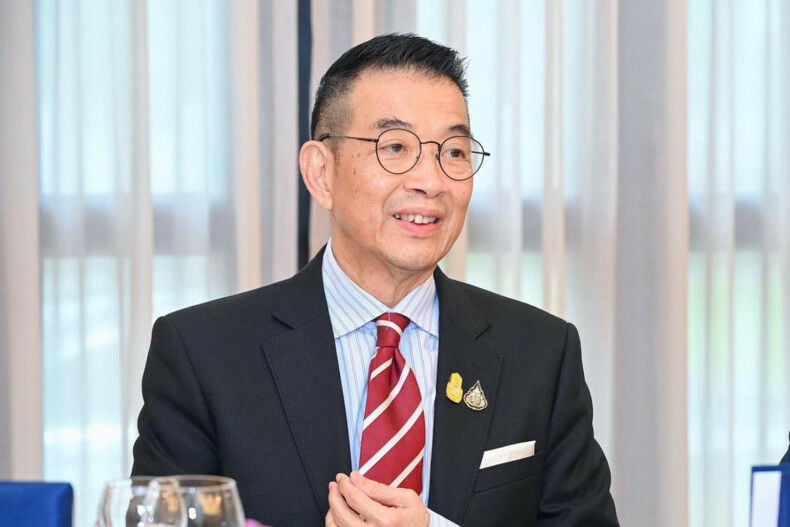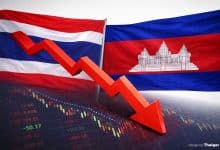Thailand to boost trade ties with South Asian nations

Thailand is setting its sights on strengthening ties with South Asian countries to enhance trade in food, energy, and human security sectors across the Southeast region.
Foreign Affairs Minister Maris Sangiampongsa, during his visit to India, discussed these ambitions following a meeting with Thai ambassadors and consuls stationed in South Asia.
Maris highlighted South Asia’s strategic significance, noting that the region is home to nearly 2 billion people, or about a quarter of the global population. This vast demographic, coupled with its position as a key hub of land and maritime connectivity, makes South Asia a focal point of geopolitical and economic interest.
Thailand, positioned centrally between South and Southeast Asia, engages actively with South Asian nations through initiatives like the Bay of Bengal Initiative for Multi-Sectoral Technical and Economic Cooperation (BIMSTEC) and the Association of Southeast Asian Nations (ASEAN) Plus Three. These collaborations are crucial as both regions collectively encompass around two billion people.
The minister also pointed out Thailand’s potential to facilitate trade links between South Asia and Central Asia, including nations such as Kazakhstan and Tajikistan, which have connections to Europe.
India emerged as a pivotal partner for Thailand in South Asia, underlined by its long-standing diplomatic relations. Maris met with India’s External Affairs Minister, Subrahmanyam Jaishankar, to explore various collaborative opportunities aimed at sustainable regional development.
“India remains our most significant partner in South Asia,” Maris remarked, emphasising the strong bilateral ties between the two nations.
Trade ties
This collaboration aligns with Thailand’s strategic agenda under Prime Minister Paetongtarn Shinawatra’s administration, which aims to fortify connections with emerging economies.
Maris also noted the importance of Bangladesh, a nation with high potential yet facing economic and political hurdles, and Sri Lanka, which shares cultural bonds with Thailand, particularly in Buddhism, trade, and investment.
Thai diplomats in South Asia have been directed to focus on a people-centred foreign policy centred around three main pillars: food security, energy security, and human security. These priorities reflect Thailand’s commitment to fostering stronger ties in the region.
Beyond these areas, the meeting touched on potential defence and military collaborations, including joint training exercises with India, Pakistan, and other South Asian countries.
Maris stressed the significance of tourism and cultural exchange, including medical tourism, leveraging Thailand’s strategic location to boost the economy, growth, and employment, reported Bangkok Post.
“Tourism and cultural exchange, including medical tourism, are vital for our economic growth and job creation,” Maris stated, underscoring Thailand’s multifaceted approach to engaging with its South Asian partners.
Latest Thailand News
Follow The Thaiger on Google News:


























